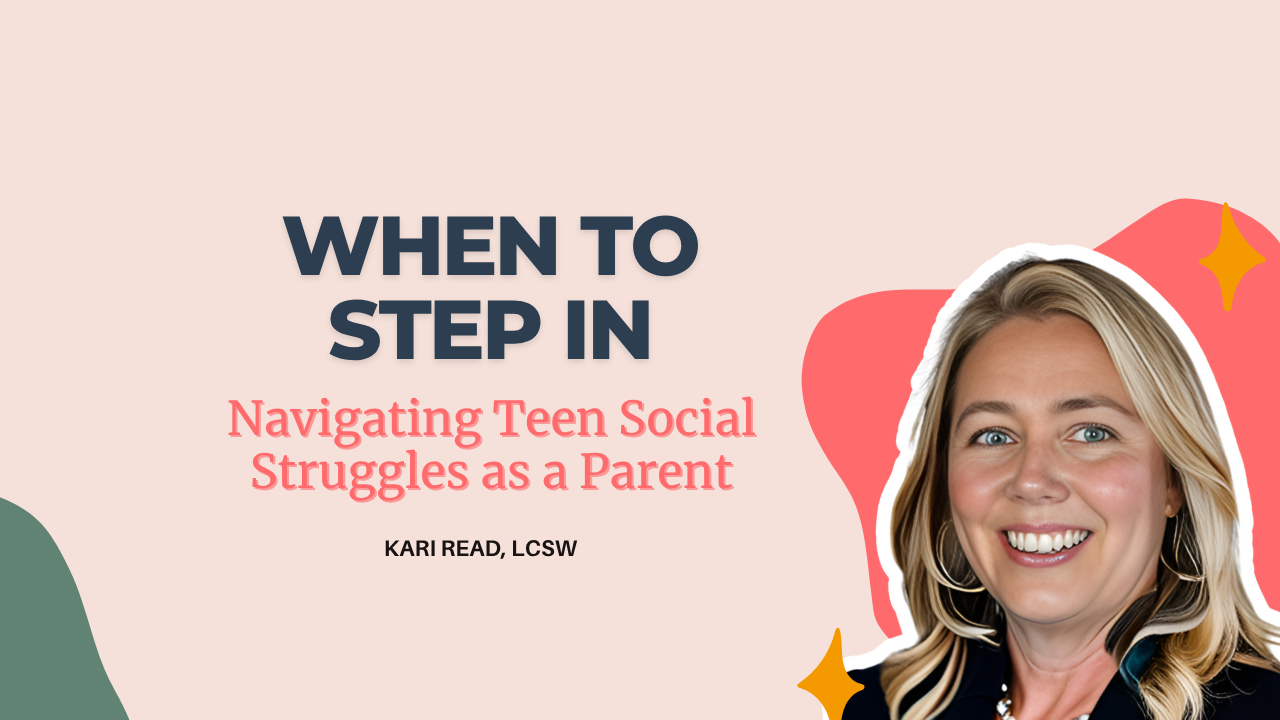When to Step In: Navigating Teen Social Struggles as a Parent
May 13, 2025
One of the biggest challenges in parenting is knowing when to step in and when to step back when your teen faces social struggles. Whether it's friendship conflicts, exclusion, or even bullying, it’s hard to decide when your involvement will help and when it might hinder their growth. As parents, we want to protect our children, but we also want them to develop resilience, independence, and strong social skills.
Understanding Teen Social Development
During adolescence, friendships and social interactions play a crucial role in shaping emotional regulation, self-esteem, and confidence. While social struggles can be painful, they are also a normal part of development. Teens are learning to navigate relationships, set boundaries, and develop problem-solving skills—all of which are essential for their future.
When to Step Back as a Parent
Not every social challenge requires parental intervention. Sometimes, stepping back allows your teen to build resilience and learn to handle conflicts on their own. Research published in Child Development highlights that teens who independently navigate social situations develop stronger problem-solving skills and emotional resilience.
You might step back if:
The issue is a minor disagreement or misunderstanding
Your teen isn’t showing signs of emotional distress
It’s a typical friendship challenge that can be worked through with time
In these cases, offering emotional support and active listening is often the best way to help.
When to Step In and Intervene
There are times when parental intervention is necessary to ensure your teen’s well-being. According to the American Academy of Pediatrics, social issues such as bullying, exclusion, and manipulation can have long-term effects on mental health, including anxiety, depression, and low self-worth.
You should step in if:
Your teen is experiencing ongoing bullying or harassment
They are withdrawing from social interactions or showing signs of distress (crying, isolation, anxiety)
There’s a toxic relationship that’s affecting their mental health
How to Support Without Taking Over
If your teen is struggling socially, it’s important to offer guidance without dominating the situation. Here’s how:
Start with Open Communication – Instead of rushing to give advice, ask open-ended questions like, “How are things going with your friends?” or “What’s been happening at school?” This lets them share their experiences without feeling judged.
Validate Their Feelings – Acknowledge your teen’s emotions, even if you don’t fully understand them. Saying “That sounds really tough. I can see why you’re upset,” helps them feel heard and supported.
Offer Support, Not Solutions – Rather than immediately fixing the problem, encourage them to think through solutions. Ask, “What do you think would help?” or “How do you want to handle this?” This builds confidence in their ability to manage conflicts.
Involve Others When Necessary – If the issue involves bullying or serious emotional distress, consider working with the school, a counselor, or other trusted adults to ensure your teen gets the support they need.
Finding the Balance Between Support and Independence
Knowing when to step in and when to step back is a delicate balance, but getting it right helps teens develop confidence, emotional intelligence, and resilience. Research from the Journal of Clinical Child and Adolescent Psychology shows that teens who experience supportive but non-intrusive parenting are more likely to build healthy relationships and develop positive coping strategies.
By respecting your teen’s autonomy while offering guidance when necessary, you help them navigate social struggles in a way that prepares them for adulthood.

